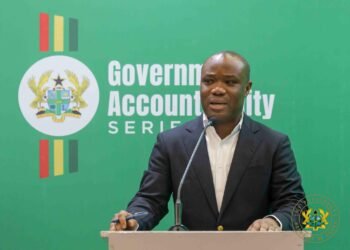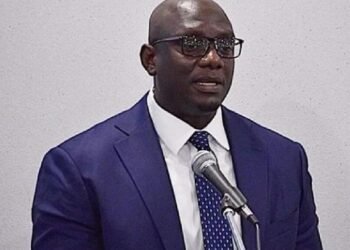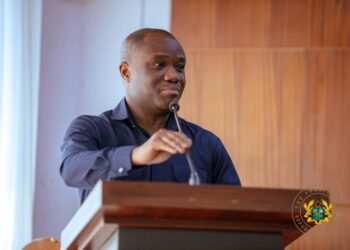Ghana’s Finance Minister, Dr. Cassiel Ato Forson, has announced a major reorganisation of the Ghana Road Fund, signalling the government’s renewed focus on road maintenance across the country.
Addressing Parliament during the Mid-Year Budget Review for 2025, Dr. Forson revealed that the government will be replacing the current Road Fund with a newly proposed Road Maintenance Trust Fund, which is expected to introduce a more transparent, equitable, and efficient framework for financing road upkeep.
According to the Minister, the existing structure of the Ghana Road Fund has outlived its purpose, and the new model aims to respond directly to growing concerns about the deteriorating state of road infrastructure, particularly in underserved communities.
“The Government has taken a decision to remodel the Ghana Road Fund and refocus it towards road maintenance,” Dr. Forson told Parliament. He further noted that as part of the Mid-Year Review, the Minister for Roads and Highways would, on behalf of the government, be laying before the House a new bill to establish the Road Maintenance Trust Fund.

Dr. Forson said the newly proposed Fund will not merely be a name change but will come with significant structural reforms.
“The Road Maintenance Trust Fund will replace the Ghana Road Fund. It will, among others, provide for a new governance architecture, provide a formula for a fairer allocation of resources, and introduce more transparency in the utilisation of the road fund levy and others.”
Finance Minister, Dr. Cassiel Ato Forson
The new governance architecture of the Fund is expected to correct some of the inefficiencies and political interference that have plagued road fund allocations over the years.
By ensuring that allocations are driven by data, road conditions, and developmental need rather than political discretion, the government hopes to restore public confidence in how road taxes and levies are used.
166 Constituencies in Need of Better Roads
As part of the reorganisation, the Finance Minister disclosed that the government has identified 166 constituencies that are in dire need of improved road infrastructure.
These constituencies, he said, have suffered historical neglect, leading to poor connectivity, high transport costs, and limited access to economic opportunities. In response, the government has committed to a targeted road rehabilitation programme in those areas.

“In response, we have programmed to rehabilitate 10km of roads annually in each of these constituencies,” Dr. Forson announced. He added that this plan, when implemented over a three-year period, would result in the reconstruction of approximately 5,000 kilometres of roads across the 166 constituencies.
This move aligns with broader efforts by the government to address Ghana’s infrastructure deficit and improve mobility in rural and peri-urban areas. Poor road networks have long hindered access to markets, healthcare, and education for millions of Ghanaians.
The Finance Minister’s announcement appears to mark a strategic shift toward prioritising maintenance over new construction, a departure from previous policies that heavily favoured building new roads.
The emphasis on maintenance also reflects fiscal prudence, especially in a period when the government is working under tight budgetary constraints following its ongoing economic recovery programme.
In a political context, the decision to focus on 166 specific constituencies may also raise questions about how those areas were selected. However, Dr. Forson stressed that the criteria were based on technical assessments and pressing infrastructure needs, not partisan considerations.
The allocation of 10km of roads annually per constituency is meant to ensure an equitable and phased approach to infrastructural improvement across regions.
The government is expected to accompany the Road Maintenance Trust Fund Bill with policy guidelines and implementation strategies that outline the sources of funding, disbursement mechanisms, monitoring and evaluation frameworks, and public reporting systems.

Once approved by Parliament, the Road Maintenance Trust Fund is expected to operate as a more autonomous and transparent vehicle for delivering sustained road maintenance across the country.
As Dr. Forson concluded his remarks on the subject, he reaffirmed the government’s commitment to prioritising infrastructure maintenance as a core aspect of its broader economic transformation agenda.
READ ALSO: Small-Scale Sector Gold Exports Hit $5B in H1 2025 – Finance Minister























